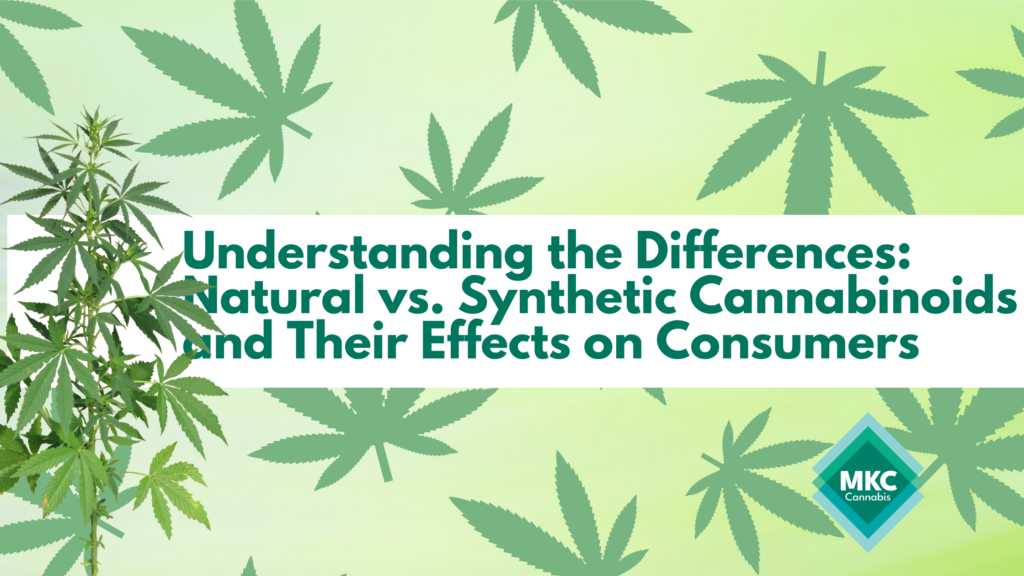Educate readers on the key differences between natural cannabinoids (such as CBD, CBG, and THC) and synthetic cannabinoids (like THC-O, delta-6, and delta-10 THC). Discuss the potential effects and risks associated with each type of cannabinoid and provide guidance for consumers looking to make informed decisions about their cannabinoid use.
Cannabinoids, the active compounds found in cannabis plants, can be classified as either natural or synthetic. While natural cannabinoids such as CBD, CBG, and THC have been widely studied and are well-known for their potential health benefits, synthetic cannabinoids like THC-O, delta-6, and delta-10 THC are relatively new and less understood. In this article, we’ll explore the differences between natural and synthetic cannabinoids and their potential effects on consumers.
Natural Cannabinoids
Natural cannabinoids are derived directly from cannabis plants and include compounds like CBD, CBG, and THC. These compounds have been researched extensively for their potential therapeutic benefits, and their safety profiles are generally well-established.
Synthetic Cannabinoids
Synthetic cannabinoids are created in laboratories by modifying the molecular structure of natural cannabinoids. Examples include THC-O, delta-6, and delta-10 THC. These compounds often have different potencies and effects compared to their natural counterparts, and their safety profiles may be less well-known.
Potential Effects and Risks
While natural cannabinoids have been widely studied and are generally considered safe when used as directed, synthetic cannabinoids may pose additional risks due to their altered chemical structures and limited research. Some potential effects and risks associated with each type of cannabinoid include:
Natural Cannabinoids:
CBD: Known for its potential anti-inflammatory, anxiolytic, and neuroprotective properties, CBD is non-intoxicating and generally considered safe for most consumers.
CBG: Similar to CBD, CBG is non-intoxicating and may have potential benefits such as reducing inflammation, providing pain relief, and protecting the nervous system.
THC: The psychoactive compound in cannabis, THC may offer pain relief, anti-inflammatory, and appetite-stimulating effects. However, it can also cause intoxication, impair cognitive function, and trigger anxiety or paranoia in some individuals.
Synthetic Cannabinoids:
THC-O: A potent synthetic cannabinoid, THC-O is said to produce a more intense and longer-lasting “high” than natural THC. However, limited research and anecdotal reports suggest it may also cause more severe side effects, such as increased anxiety, paranoia, and hallucinations.
Delta-6 and Delta-10 THC: These synthetic THC variants may have similar effects to natural THC but with altered potencies and durations. As they are relatively new and understudied, their safety profiles and potential side effects remain unclear.
Guidance for Consumers
For consumers looking to make informed decisions about their cannabinoid use, it’s essential to consider the following:
Research and Education: Stay informed about the latest research and scientific findings on natural and synthetic cannabinoids. This will help you better understand their potential benefits, risks, and side effects.
Consult with Professionals: Always consult with a healthcare professional before starting any new cannabinoid regimen, especially if you have pre-existing health conditions or are taking medications.
Choose Reputable Brands and Products: Opt for products from reputable brands that prioritize quality, safety, and transparency. Look for third-party lab testing results to ensure the product contains the stated cannabinoids and is free from contaminants.
Start Low and Go Slow: When trying a new cannabinoid product, begin with a low dose and gradually increase it over time, monitoring your body’s response and adjusting as needed.
In conclusion, understanding the differences between natural and synthetic cannabinoids is crucial for making informed decisions about your cannabinoid use. While natural cannabinoids like CBD, CBG, and THC have established safety profiles and potential health benefits, synthetic cannabinoids such as THC-O, delta-6, and delta-10 THC may pose additional risks due to their altered chemical structures and limited research. By staying educated, consulting with professionals, and choosing reputable products, consumers can navigate the complex world of cannabinoids and make choices that best suit their needs and preferences.







